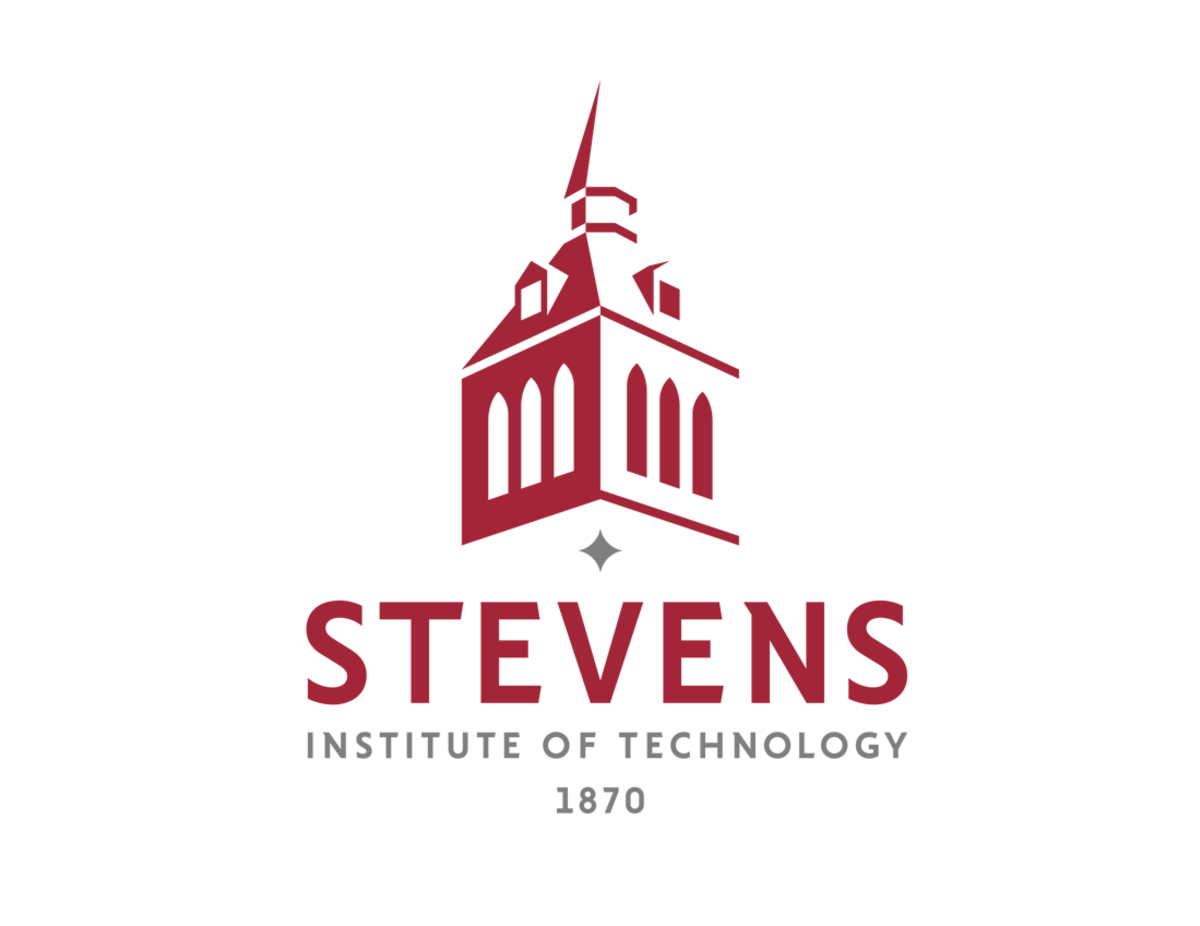
Bachelor's in Technology and Master's in Finance - Accelerated Master's Program
Program Details
Degree
Master of ScienceSchool
School of BusinessDepartment
School of Business Graduate ProgramAvailable
On campusStevens School of Business and SKVM's NMIMS Deemed-to-be University offer a highly-coordinated Finance Accelerated Master's Program.
In the first year, you will enroll full-time at NMIMS (12 credits). Then, you will enroll full-time at the Stevens School of Business, taking courses within the Finance program (24 credits). After completing the program (5 years), you will receive a Bachelor of Technology degree from NMIMS and a M.S. in Finance from Stevens.
Stevens Institute of Technology
Stevens Institute of Technology is a premier, private research university in Hoboken, New Jersey, overlooking the Manhattan skyline. Since its founding in 1870, technological innovation and entrepreneurship have been the hallmarks of Stevens’ education and research. Within the university’s three schools, Stevens prepares its more than 8,000 undergraduate and graduate students for an increasingly complex and technology-centric world. Our exceptional students collaborate closely with world-class faculty in an interdisciplinary, student-centric, entrepreneurial environment, readying them to fuel the innovation economy. Academic and research programs spanning finance, computing, engineering and the arts expand the frontiers of science and leverage technology to confront the most challenging problems of our time. Stevens is consistently ranked among the nation’s leaders in ROI and career services and is in the top 1% nationally of colleges with the highest-paid graduates.
Program Highlights
Mastering In-Demand Skills: The Stevens School of Business master’s finance degree is designed with an ever-evolving, leading-edge curriculum that equips students with the skills and knowledge sought after by top employers in the finance industry. The program's real-world relevance ensures graduates are job-ready from day one. Stevens alumni have built a solid foundation of excellence that future graduates are prepared to build on.
Wall Street Tools: Students gain hands-on experience with the latest technologies used by Wall Street firms and global financial institutions, providing them with a competitive edge in the job market. The program's emphasis on practical application ensures seamless integration into dynamic finance roles.
Unparalleled Industry Insights: Diverse and knowledgeable faculty with extensive industry experience brings unique perspectives and insights to the classroom. Students gain a comprehensive understanding of the complexities across financial disciplines that prepare them for success in a globalized financial landscape.
Powerful Professional Networks: Finance faculty members maintain close ties with the industry, enabling them to connect students with valuable professional networks and discover opportunities that align with their individual interests and career aspirations. This personalized approach helps ensure a smooth transition from academia to the finance industry.
The Heart of Global Finance: Stevens' proximity to New York City, the world's financial capital, provides students with unique unparalleled access to industry leaders, networking events and real-world finance experiences. Our strategic location offers a competitive advantage for students seeking to launch successful careers in the heart of global finance.
GMAT/GRE test scores are optional for all master’s programs. Applicants who think that their test scores reflect their potential for success in graduate school may submit scores for consideration.
A Finance Degree for Today's Tech-Driven World
The STEM-designated* master in Finance reflects the unique blend of technology, analytics and data skills required of professionals in this field, to confront the challenges of today and to better understand the business opportunities of tomorrow.
As a result of this careful curricular design, several important organizations — the CFP Board, CFA Institute and the Global Association of Risk Professionals — have recognized the Stevens master’s in Finance as providing unique value to students who complete these programs.
In addition to its curricular design, the Master in Finance remains relevant through its Hoboken location, putting the campus a 10-minute train or ferry ride from Wall Street.
*A STEM-designated program allows students from outside of the U.S. to be eligible for a 24-month extension of their Optional Practical Training (OPT).
Artificial Intelligence in Finance
Artificial Intelligence is revolutionizing the finance industry, enhancing risk management, trading automation, fraud detection and financial forecasting. AI-powered algorithms process massive datasets in real-time, enabling firms to make faster, more accurate investment decisions while reducing human error. Machine learning is reshaping credit scoring, portfolio management and algorithmic trading, giving financial professionals a data-driven competitive edge.
At Stevens Institute of Technology, we are leading the way in AI-driven finance, integrating machine learning, data analytics and financial technology into our STEM-designated Finance program. Our faculty are actively researching AI applications in quantitative finance, fraud detection and high-frequency trading, ensuring students gain hands-on experience with the latest financial innovations. Learn more about our research at the Hanlon Financial Systems Center.
Courses
MGT 700 Econometrics
An introduction to the science of designing statistical models of economic processes. Students will be required to build and estimate a number of models during the term. Topics include: regression theory, statistical difficulties in regression analysis, advanced topics in single-equation regression, models of qualitative choice (such as, probit, logit), and simultaneous equation estimation.
FIN 638 Corporate Finance
This course serves as a second semester sequence in corporate finance. Students enrolling should have a mastery of the topics of covered in Managerial Finance I (EMT 623), including time value of money, capital budgeting, risk adjusted hurdle rates, managerial accounting, and ratio analysis. Among the topics covered in EMT 638 are: leverage on the balance sheet and weighted average cost of capital; bankruptcy, turnarounds, and recapitalizations; international currency hedging; stock options; private equity valuation; mergers and acquisitions; and the issuance of public and private securities.
FE 535 Introduction to Financial Risk Management
This course deals with risk management concepts in financial systems. Topics include identifying sources of risk in financial systems, classification of events, probability of undesirable events, risk and uncertainty, risk in games and gambling, risk and insurance, hedging and the use of derivatives, the use of Bayesian analysis to process incomplete information, portfolio beta and diversification, active management of risk/return profile of financial enterprises, propagation of risk, and risk metrics.
FIN 620 Financial Econometrics
This course introduces the main concepts of data analysis and econometrics applied to financial problems. The course explores data analysis techniques; time series models; multivariate, factor and Bayesian models applied to high frequency trading, volatility forecast, risk management, portfolio optimization, and asset pricing. Students will work with historical databases, conduct their own analysis, and test trading and/or investment strategies based on the techniques reviewed during the class.
FE 511 Introduction to Bloomberg & Thomson-Reuters
This course is designed to teach students the nature and availability of the financial data available at Stevens. The focus of the course will be on equity, futures, FX, options, swaps, CDS’s, interest rate swaps etc. They will learn to how use a Bloomberg terminal. As part of the course the students will be certified in the 4 areas that Bloomberg offers certification. We will cover the Thomson–Reuters Tick history data and basics of using this data. The course also introduces basics of applied statistics. Bloomberg terminal access will be required for any student taking the course on the web.
FE 515 Introduction to R
In this course the students will learn the basics of the open source programming language R. The language will be introduced using financial data and applications. Basic statistical knowledge is required to complete the course. The course is designed so that upon completion the students will be able to use R for assignments and research using data particularly in finance.
FE 514 Financial Lab: VBA in Finance
This course is an introduction to programming with VBA - the Visual Basic for Applications language. In particular, we will be using VBA within MS Excel, and time permitting, MS Access as well. Excel is used everywhere in finance, and VBA allows practitioners to go beyond standard spreadsheet calculation and modeling. Programming with VBA (and using macros) enhances the versatility and power of Excel. The goal of this course is to teach our students Excel usage at a high level using VBA, for front office applications in financial institutions. Financial and mathematical applications will be presented and studied throughout the course.
FIN 530 Investment Banking
This course focuses on the main activities of sell-side investment services such as: financial advisory, stocks and bonds structuring and underwriting, project finance and post-sale services such as equity and bond research. The course is aimed at students interested in acquiring skills and tools required for an investment banking career. The course does not cover the merger and acquisition topics (corporate, leveraged and early stage) for which the student should take the Venture Capital course.
FIN 626 Private Equity and Venture Capital
This course addresses the fundamentals of venture capital, which includes the venture capital industry, the structure of venture capital firms and venture capital investments. It addresses in some detail the relationship between venture risk and return, the cost of venture capital and the valuation of high growth companies. The course covers a variety of valuation methods as well as analysis of company capital structure or "cap tables".
FIN 628 Derivatives
This course covers the fundamentals of financial derivatives, including the basic properties and the pricing of futures, options and swaps. It also explores trading and hedging strategies involving financial derivatives. Special topics, such as exotic options and credit derivatives, are explored. The course provides the foundation of financial derivatives and lays the ground for a rigorous risk management course and other advanced quantitative courses, such as stochastic finance.
SVKM's NMIMS Deemed-to-be University
Since 1981, NMIMS has today emerged as a globally reputed university. Always socially conscious, the Shri Vile Parle Kelavani Mandal (SVKM) made the decision to cater to the rising demand of management institutes in India which led to the birth of the Narsee Monjee Institute of Management Studies (NMIMS). NMIMS currently has 17 specialized schools with more than 17,000 students and about 750 full-time faculty members, 10 faculty members with Fulbright and Humboldt International Scholarships.
Pre-Requisite Courses
Cost and Management Accountng
Financial Management
Statistical Models
Courses
Financial Analysis and Working Capital Management
Financial Accounting
Investment Management
Investment Banking and Financial Services
Financial Institutions and Markets
Security Analysis
Business Economics, Macroeconomics



